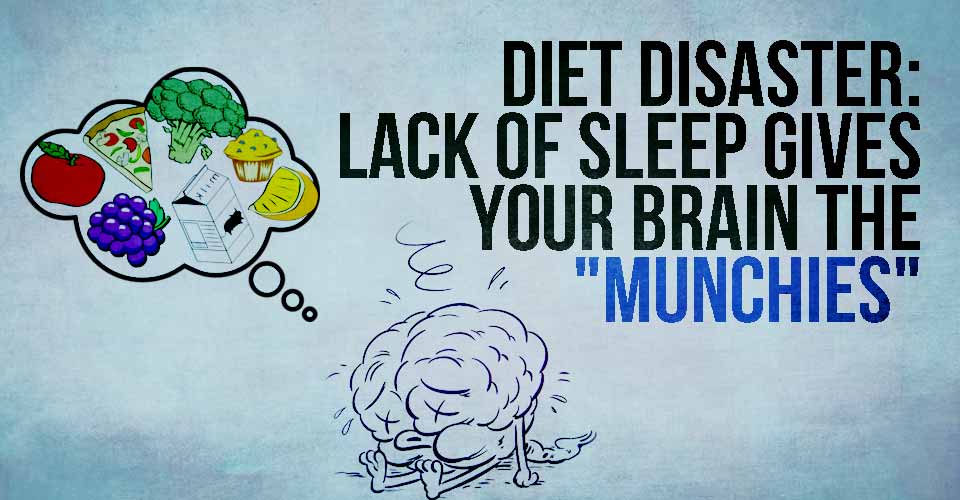
As someone who regularly has a very messed up sleep cycle, a new study that was recently published in the journal Sleep has really caught my attention. I’ve written before about how sleep, or the lack of it, can effect you health and your mood, but this new study suggests that when you don’t get enough sleep you are more likely to make bad diet choices and be more likely to overeat.
The study, which was conducted by Dr. Erin Hanlon from the University of Chicago, showed that when people didn’t get enough sleep they were much more likely to eat what she describes as “highly palatable, rewarding snacks”. What was most telling in the study, was that even when subject who had been deprived of sleep had eaten a good meal, they still had snack cravings only two hours after eating.
Read: 4 Tips to Prepare Your Body for the Best Sleep You’ll Ever Get
Dr. Hanlon beleives that the root cause of the snack cravings lies in what is known as the endocannabinid system of the brain. According to Dr. Hanlon, “We found that sleep restriction boosts a signal that may increase the hedonic aspect of food intake, the pleasure and satisfaction gained from eating.
Sleep restriction seems to augment the endocannabinoid system, the same system targeted by the active ingredient of marijuana, to enhance the desire for food intake.”
Lack of sleep has been connected with obesity in other studies, and Dr. Hanlon believes that the reason for this is the bad eating habits that sleeplessness encourages. Subjects who didn’t get the standard 8 hours of sleep reported much higher hunger levels and ate twice as many snacks when given the opportunity.
Read: How Much Should You Sleep According To Science
Some people argue that staying awake longer requires more calories, but Hanlon points out that the differences in required energy are not enough to offset the increased food intake. She says, “The energy costs of staying awake a few extra hours seem to be modest. One study has reported that each added hour of wakefulness uses about 17 extra calories.
That adds up to about 70 calories for the four hours of lost sleep. But, given the opportunity, the subjects in this study more than made up for it by bingeing on snacks, taking in more than 300 extra calories. Over time, that can cause significant weight gain.”
So, with all of the dieting fads and supplements ont he market, the best thing you can do to lose weight is get some sleep. Sleep supports our health in so many ways, and in this case, can support your weightloss goals as well.


